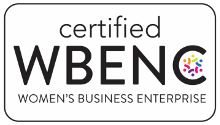The economy. The health care system. Travel. There are few aspects of our lives that won’t emerge from the pandemic forever changed, and I know I could go on and on. The way we work is probably one of the most impacted, and I’m not just saying that because I spend my day talking jobs and hiring! Many companies underwent one of the biggest pivots in history by shifting their workers to remote situations. And as workers got a taste of the new flexible way of work, they’re not all wanting to go back to the norm.
While not every profession has the ability to go remote, most of the technology jobs that we help place candidates in at McCann Partners aren’t tied to offices or desks in one location. And employers are shifting with good reason, as workers and potential job seekers want full-time remote opportunities. In fact, in a recent FlexJobs survey, 65% of respondents said they desire to be full-time remote employees post-pandemic, and another 31% want a hybrid work environment. That’s a huge 96% of respondents who want some form of remote work. In addition, close to half of remote employees said they would actually seek out a new job if their employer refused to offer remote work options long-term, post-pandemic.
What this means is that many organizations that want to compete for top talent now, and in the future, have to consider flexible options. Job seekers need to shift their way of thinking as well, reframing their job search strategy through the remote lens.
Here are my top 3 tips for job seekers in the remote work era.
Update your job search communications
Consider making a few simple edits to your resume and LinkedIn profile to properly reflect your preference for remote or flexible work. I’ve seen some candidates add a “looking for remote opportunities only” line on their resume so that hiring managers know their remote expectations right off the bat.
On your LinkedIn profile, there several different options to try if you’re seeking remote work, including:
- When you’re actively using the search for a job function on the platform, select “remote jobs” as your location, which will return only jobs that the job poster has indicated are fully remote.
- Update the Career Preferences section of your profile to include that you’re open to working remotely.
- Add a line in the Summary or Headline sections of your profile to signal to recruiters and hiring managers that they may reach out to you with remote opportunities.
Seek out the help of professionals
A staffing firm or a recruiter with a direct relationship to a company may know something that you don’t regarding remote work. Partnering with these professionals in your job search can give you insight into their clients’ willingness to be flexible. For example, if a job posting doesn’t explicitly list remote as an option, but you’re actively interested in a role, reach out to a firm or recruiter who can assist you in making the ask.
Prep the right questions
One of the most important parts of any job search is preparing questions ahead of your interview. While you are of course going to be asked a number of items by the interviewer, your inquiries are just as important. It’s your chance to further demonstrate your fit for the role, but also to find out key information regarding their flexible work arrangements. Some of the most common questions I’ve been sharing with candidates in the past few months to help get a better understanding of their remote work approach, include:
- How has your remote work policy changed in the last year?
- Do you have a return-to-work in the office plan in place? Does it offer any hybrid options?
- What are the physical requirements and adjustments you’ll be making at the office?
- In what ways has your company been impacted due to the remote nature of work the past year?
While you don’t have to upend your job search approach in this new frontier of work, some subtle shifts in mindset will help you better navigate and find the right opportunities for your lifestyle. Feel free to reach out to me directly on LinkedIn if you have any specific questions about how to approach your job search.








